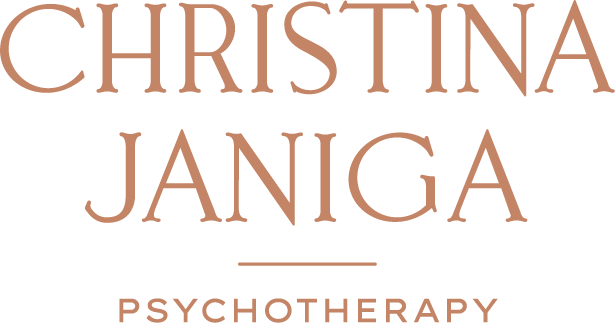Menopause and Perimenopause Counselling in Burlington & Online Across Ontario
Supporting women through hormonal transitions with compassionate evidence-based therapy. Providing Psychotherapy and Counselling services for symptoms related to the perimenopause and menopause phases of life, in person at our office in Burlington and virtually online across Ontario.
Understanding Perimenopause & Menopause
Menopause and perimenopause can bring intense emotional, physical, and psychological changes. Whether you’re struggling with mood swings, hot flashes, sleep problems, anxiety, or feeling disconnected from yourself, counselling can help you navigate this life stage with resilience, clarity, and support.
- Perimenopause (often starting in the late 30s–40s) is the transition period before menopause. Hormones fluctuate, causing irregular cycles, hot flashes, night sweats, mood swings, anxiety, and brain fog.
- Menopause is reached when you’ve gone 12 consecutive months without a period (average age: 51). Symptoms may continue for several years after.
- These changes are natural, but they can feel overwhelming—especially when combined with stress, career demands, caregiving, or unresolved trauma.
Manage Symptoms of Menopause and Perimenopause with Counselling Support like CBT, EMDR Therapy
What You Can Expect From Menopause Therapy with our team at Christina Janiga Psychotherapy:
- Understand your perimenopause/menopause symptoms and the reasons they show up in your life.
- From a neurodiversity-affirming perspective learn Better coping skills – Build strategies to manage symptoms without letting them take over your day.
- Reduced symptoms – Lessen the intensity and frequency of hot flushes, night sweats, mood swings, and anxiety.
- Effectively process the experiences from the past that contribute to your current symptoms and beliefs about yourself so that you can carry on with confidence and peace with yourself.
- Improved well-being – Feel more confident, resilient, and empowered during and after perimenopause/menopause.
Who Can Benefit From Menopause and Perimenopause Counselling?
Menopause and Perimenopause counselling is valuable for anyone experiencing challenges related to perimenopause or menopause symptoms, including those who:
- Struggle with mood swings, symptoms of anxiety or depression that may be triggered or worsened by hormonal changes.
- Experience disruptive symptoms such as hot flashes, night sweats, or sleep problems.
- Feel isolated, overwhelmed, or misunderstood during this transition.
- Want to learn effective coping strategies to manage symptoms and reduce stress.
- Are considering or currently using Hormone Replacement Therapy and want support integrating lifestyle and emotional well-being.
- Desire guidance on healthy lifestyle changes that support overall well-being during menopause.
- Individuals who experienced childhood trauma or adverse life experiences face a higher risk of developing symptoms of depression and anxiety during the menopausal transition. These early experiences affect not only emotional health but also have biological effects, shaping how the body responds to stress and hormonal fluctuations over a lifetime.
Whether symptoms are mild or severe, counselling can provide personalized tools and support to help you navigate this time with greater confidence and ease.
How Counselling Helps You Cope with Perimenopause & Menopause
Counselling offers a safe, non-judgmental space to talk openly about your symptoms, challenges, and emotions during this transition. Many women feel isolated or misunderstood — especially when hot flashes, mood swings, and sleep disruptions begin affecting daily life, relationships, and self-esteem.
Working with a therapist can help you:
- Feel understood and supported – Know you’re not alone in your experiences.
- Learn coping strategies – Mindfulness, relaxation exercises, and CBT techniques to reduce stress and anxiety.
- Make lifestyle shifts – Guidance on nutrition, movement, and self-care habits that can ease symptoms.
- Process through past childhood trauma and adverse life experiences to support the ease in this phase of life.
Our Counselling Approaches
We use evidence-based, trauma-informed therapies tailored to your unique needs:
- Cognitive Behavioural Therapy (CBT): Helps reduce anxiety, depression, and sleep problems linked to perimenopause and menopause.
- EMDR Therapy: Supports healing from past trauma, reduces stress sensitivity, and improves emotional regulation.
- ACT: mind-body and lifestyle strategies that support relaxation, mindfulness, and daily practices to improve sleep, energy, and overall well-being.
- Trauma-informed Counselling: Recognizes how life history influences your perimenopause and menopause experience, creating a safe space for deeper healing.
Our team at Christina Janiga Psychotherapy, provide personalized strategies to help you navigate perimenopause and menopause with more ease, confidence, and control. By combining emotional support, practical tools, and lifestyle guidance, counselling can transform this stage of life into one of resilience and renewed well-being.
We understand that seeking help for menopause or perimenopause symptoms can be intimidating, and we are here to make the process as easy and comfortable as possible for you.
Our therapists are warm, compassionate, and non-judgmental, and we are committed to creating a safe and supportive environment for you to explore your thoughts and feelings. Our team is here to support you towards navigating your menopause journey.
Therapeutic Approaches Offered for Perimenopause and Menopause Symptoms
CBT for Menopause
Cognitive Behavioural Therapy (CBT) helps you identify and reframe unhelpful thinking patterns that can worsen physical and emotional symptoms. When combined with healthy lifestyle changes, you get a complete approach to symptom relief.
CBT + Lifestyle + Diet + HRT (if appropriate, please talk to your doctor) = Comprehensive Relief
- Emotional support: Managing mood swings, anxiety, and depression.
- Physical relief: Strategies for better sleep, fewer hot flashes, and increased energy.
- Lifestyle empowerment: Nutrition, exercise, and stress management for lasting wellness.
How EMDR Therapy Can Help
Eye Movement Desensitization and Reprocessing (EMDR) is a proven therapy for processing unresolved trauma. Unlike traditional talk therapy, EMDR helps the brain reprocess distressing memories so they lose their emotional intensity.
This can be especially powerful for women navigating perimenopause because:
- EMDR addresses the root cause of distress, not just the symptoms.
- It can reduce anxiety symptoms and emotional reactivity triggered by hormonal changes.
- It builds emotional resilience for future life transitions.
In therapy, we begin by ensuring a strong foundation of safety and coping strategies. From there, we gently work through specific memories, helping you feel more in control and less overwhelmed.
Menopause & Trauma: Understanding the Mind-Body Connection
For many women, the transition through perimenopause and menopause is more than just a physical change—it’s also an emotional one. Hormonal shifts can bring mood changes, anxiety, and disrupted sleep. But if you have a history of trauma, these symptoms can feel stronger, more unpredictable, and harder to manage.
Our team at Christina Janiga Psychotherapy, provides trauma-informed menopause and perimenopause counselling that addresses both the emotional and physical challenges of this life stage. Our approach is grounded in the latest research on how hormonal transitions affect the nervous system—especially for women with past trauma, or symptoms of PTSD or anxiety.
Why Menopause Can Intensify Trauma Symptoms
Hormonal fluctuations in estrogen and progesterone can impact mood, memory, and stress regulation.
The hypothalamic-pituitary-adrenal (HPA) axis, which controls the stress response, is closely linked to menopausal symptoms like hot flashes, palpitations, and sleep disturbances.
For women with a history of adverse childhood experiences (ACEs) or trauma, these changes can “reactivate” emotional patterns or PTSD symptoms.
Our Focused Support Includes:
- EMDR Therapy to reprocess traumatic memories and reduce triggers
- Trauma Counselling for sympoms of PTSD, anxiety, and depression
- Women’s Concerns Counselling for perimenopause, menopause, postpartum, and other hormonal transitions
Related Articles & Resources
- Childhood Trauma, Anxiety & Perimenopause
How early trauma shapes the brain and intensifies anxiety during perimenopause, plus strategies for healing. - PTSD & Menopausal Transition
The science of estrogen, stress regulation, and why PTSD symptoms can increase during menopause.
Take the First Step Toward an Empowered Menopause and Perimenopause Journey
Counselling is meant to help you ease your perimenopause and menopause symptoms and reclaim your enjoyment in daily life. Together, you and your therapist will set goals to reduce your symptoms, explore your lifestyle and sleep, and process past trauma that may be contributing to your current difficulties. You will find the most effective coping strategies that work best for you. You don’t have to navigate this transition alone.
Book a free 15 minuted consultation call.
If you are interested in seeking therapy to help you through the perimenopause and menopause phase of life, we encourage you to reach out to us for a free 15-minute consultation. During the consultation, we will answer any questions you have about our practice and our psychotherapists, and help you determine if we are the right fit for you. We believe that feeling comfortable with your therapist is essential for a successful therapeutic relationship.
Invest in your healing.
Investing in yourself is an important step towards finding the happiness and fulfillment you deserve. By seeking therapy and working with a trained professional, you can get to the root of the problems you are experiencing and find solutions that are tailored to your unique needs and goals. Together, you and your therapist will work on healing old wounds and developing healthy coping strategies to help you move forward in a way that feels authentic and fulfilling.
During this initial 50 minute session, you will meet with your therapist to define the psychotherapy relationship and discuss the details of informed consent.
Your therapist will gather information about you and your biological, psychological, and social history and how this is impacting your current situation. Together you will define the goals you have going forward.
Fees vary between therapists.
Commit to at least to 4 weekly 50-minute sessions (either in person at our Burlington office or virtually online across Ontario).
We find that clients who cannot commit to at least 4 weekly sessions tend to have more difficulty in establishing a relationship with their therapist and often sessions consist of recapping the previous weeks instead of focusing on forward movement and their treatment goals.
Fees vary between therapists.
More about Christina Janiga Psychotherapy
We are a team of skilled registered psychotherapists with a goal is to help you achieve deep and lasting change by getting to the root of your struggles with symptoms stemming from the current perimenopause and menopause phase of your life.
We believe in the power of therapy to help people overcome challenges and live fulfilling lives. Menopause is a natural stage of life, but it doesn’t have to be an overwhelming one. With the right therapeutic support, you can move through it with more stability, self-understanding, and resilience.
Frequently Asked Questions about Perimenopause and Menopause Counselling
Menopause counselling provides emotional support and practical strategies to manage physical and psychological symptoms such as hot flashes, mood swings, anxiety, and sleep disturbances. It helps women build coping skills and improve their overall quality of life during this transition.
Cognitive Behavioural Therapy (CBT) helps identify and change negative thought patterns and behaviours that worsen menopause symptoms. It equips women with coping tools to reduce anxiety, mood swings, and stress, improving emotional well-being.
Incorporating regular exercise, a balanced diet, stress management, and good sleep hygiene can significantly alleviate menopause symptoms and support overall health.
Yes. While counselling doesn’t stop hormonal changes, it provides tools to reduce stress triggers, improve sleep, and lessen symptom intensity.
Yes, EMDR therapy supports processing the emotional distress that can intensify during hormonal changes in perimenopause or menopause by helping clients desensitize and reprocess the root trauma and adverse life experiences that contribute to current symptoms from activating triggers.
Women experiencing symptoms such as mood changes, anxiety, hot flashes, sleep problems, or feelings of isolation during perimenopause or menopause can benefit from counselling tailored to their unique needs.
Perimenopause is the transition leading up to menopause, when hormone levels fluctuate. Menopause is officially reached after 12 months without a menstrual period.
Counselling complements medical treatments by addressing mood, anxiety, and lifestyle challenges alongside HRT or other medical care.


